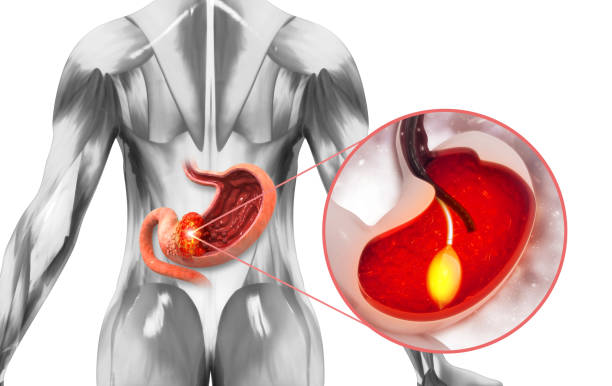03 Feb 2026
Rhinoplasty Revision Surgery in Mohali: Cost When Your First Nose Job Fails


Dr. Parneet Singh
04 Aug 2025
Call +91 80788 80788 to request an appointment.
At Livasa Hospitals in Hoshiarpur, we understand the profound impact cancer can have on individuals and their families. Stomach cancer, also known as gastric cancer, is a daunting diagnosis, affecting thousands globally each year. It primarily occurs when malignant cells in the stomach's lining begin to proliferate out of control. As with many cancers, early detection and a deep understanding of risk factors are paramount in improving prognosis and survival rates.
Our comprehensive stomach cancer risk assessment program at Livasa Hoshiarpur focuses on analyzing age, diet, lifestyle, and genetic predispositions to furnish a detailed understanding of one's cancer risk. Understanding these factors not only aids in early detection but also helps formulate personalized prevention strategies.
Age is a significant risk factor when assessing the likelihood of developing gastric cancer. According to global statistics, the average age of diagnosis is 68, with approximately 60% of patients being 65 years or older. This trend highlights the necessity for heightened vigilance and regular screenings as one advances in age.
At Livasa Hoshiarpur, our elderly patient demographic is provided with tailored screening protocols. We recommend regular endoscopies and imaging tests for those over 50, especially if there is a family history of gastric ailments. These preventive measures are crucial in the early identification of possible malignant changes within the stomach lining.
The dietary habits prevalent in Punjab significantly influence stomach cancer risks. Diets high in smoked and salted foods and low in fresh fruits and vegetables have been associated with higher incidences of gastric cancer. Preserved foods often contain nitrates and nitrites, which can convert into carcinogenic compounds within the stomach.
At Livasa Hoshiarpur, we emphasize the importance of a balanced diet rich in antioxidants and fibers. Consuming a variety of fruits, vegetables, whole grains, lean proteins, and engaging with our dieticians to create a personalized meal plan can significantly hinder cancer development. Our goal is to equip patients with dietary choices that foster digestive health and reduce carcinogenic exposure.
Lifestyle choices have a substantial influence on gastrointestinal health. Smoking, excessive alcohol consumption, and obesity are key risk factors for gastric cancer. Tobacco use leads to inflammation and increased susceptibility to malignancies, while alcohol can damage the protective lining of the stomach.
At Livasa Hoshiarpur, our team provides support through smoking cessation programs and alcohol moderation counseling. By offering nutritional and exercise guidance, we help our patients achieve and maintain a healthy body weight. These lifestyle modifications not only enhance overall health but also play a crucial role in reducing cancer risks.
Family history and genetic predispositions are pivotal in evaluating cancer risk. Certain inherited syndromes, such as Hereditary Diffuse Gastric Cancer (HDGC), increase susceptibility to stomach malignancies. If a close relative has been diagnosed with gastric cancer, your risk might be elevated.
Livasa Hoshiarpur offers genetic counseling and testing to identify individuals at heightened risk due to hereditary factors. Our specialists undertake a detailed family history analysis to guide subsequent screening and preventive measures effectively. Early identification of genetic risks allows for proactive health management and tailored surveillance strategies.
In its incipient stages, stomach cancer may present with subtle symptoms that are easily overlooked, such as indigestion, minor stomach discomfort, or unexplained weight loss. As the disease progresses, symptoms can become more pronounced, including persistent pain, loss of appetite, nausea, and vomiting.
At Livasa Hoshiarpur, we advocate for a proactive approach. Our comprehensive risk assessment informs the frequency of screenings tailored to individual risk factors. Techniques such as endoscopy, biopsy, and advanced imaging are pivotal in identifying gastric cancer at an early, more treatable stage.
Treatment for stomach cancer is determined by the cancer stage, its location, and the patient’s overall health. At Livasa Hospitals, we offer a suite of advanced treatment protocols, including surgical interventions, chemotherapy, radiation therapy, and targeted drug therapies.
| Treatment | Advantages | Considerations |
|---|---|---|
| Surgery | Can be curative in early stages | Requires post-operative recovery |
| Chemotherapy | Effective in shrinking tumors | Can have side effects like nausea |
| Radiation Therapy | Targets specific areas | May cause localized discomfort |
| Targeted Drug Therapy | Minimizes damage to normal cells | Depends on specific genetic mutations |
Livasa Hoshiarpur ensures each patient's treatment plan is uniquely tailored, combining the best in medical practice with cutting-edge technology to offer optimal outcomes.
While genetic factors are beyond control, various modifiable lifestyle adjustments can significantly decrease stomach cancer risks. Some effective prevention strategies include:
At Livasa Hospitals, our aim is not only to treat but also to educate and empower our patients to lead healthier lives, thereby reducing their cancer risk through informed lifestyle choices.
Stomach cancer remains a significant health concern, particularly in regions like Punjab, where dietary habits and lifestyle choices heighten risks. Understanding personal risk factors and engaging in regular health assessments can lead to early detection and improved outcomes.
Livasa Hoshiarpur offers comprehensive, personalized stomach cancer assessments to support patients in their journey toward optimal health. Early detection saves lives, and informed lifestyle adjustments can significantly mitigate risks.
We invite you to take proactive steps in managing your health by scheduling a risk assessment at Livasa Hospitals today. Contact us at +91 80788 80788 or visit our website for more information.
Rhinoplasty Revision Surgery in Mohali: Cost When Your First Nose Job Fails
Plastic Surgery After Massive Weight Loss: Body Contouring Packages in Mohali
ENT + Cosmetic in Mohali: Septoplasty for Breathing with Cosmetic Rhinoplasty Offers
Livasa Healthcare Group Corporate Office,Phase-8, Industrial Area, Sector 73, Sahibzada Ajit Singh Nagar, Punjab 160071
| Mohali | +91-99888 23456 |
| Amritsar | +91-99887 49494 |
| Hoshiarpur | +91-99883 35353 |
| Nawanshahr | +91-75081 82337 |
| Khanna | +91-98888 05394 |